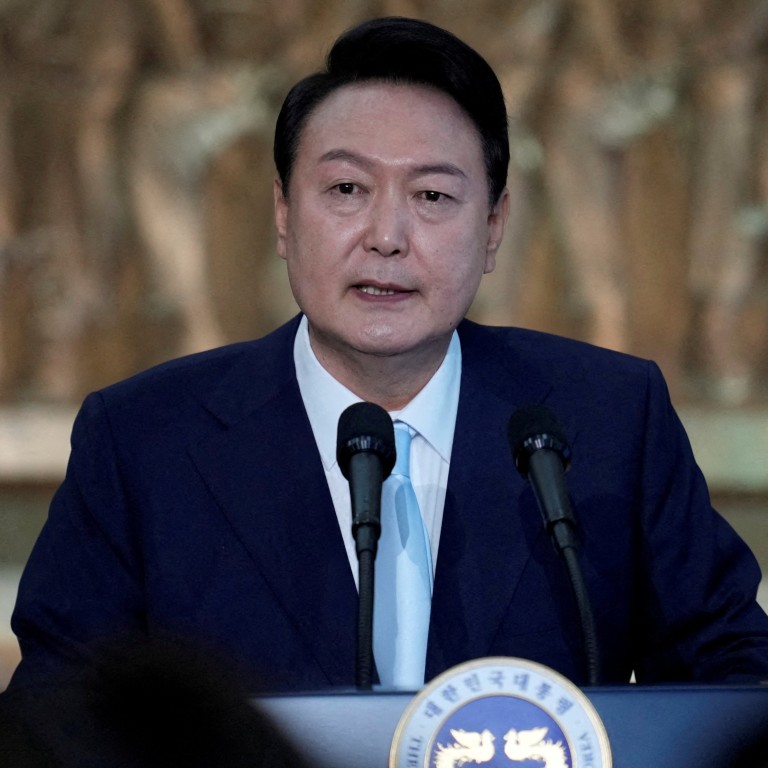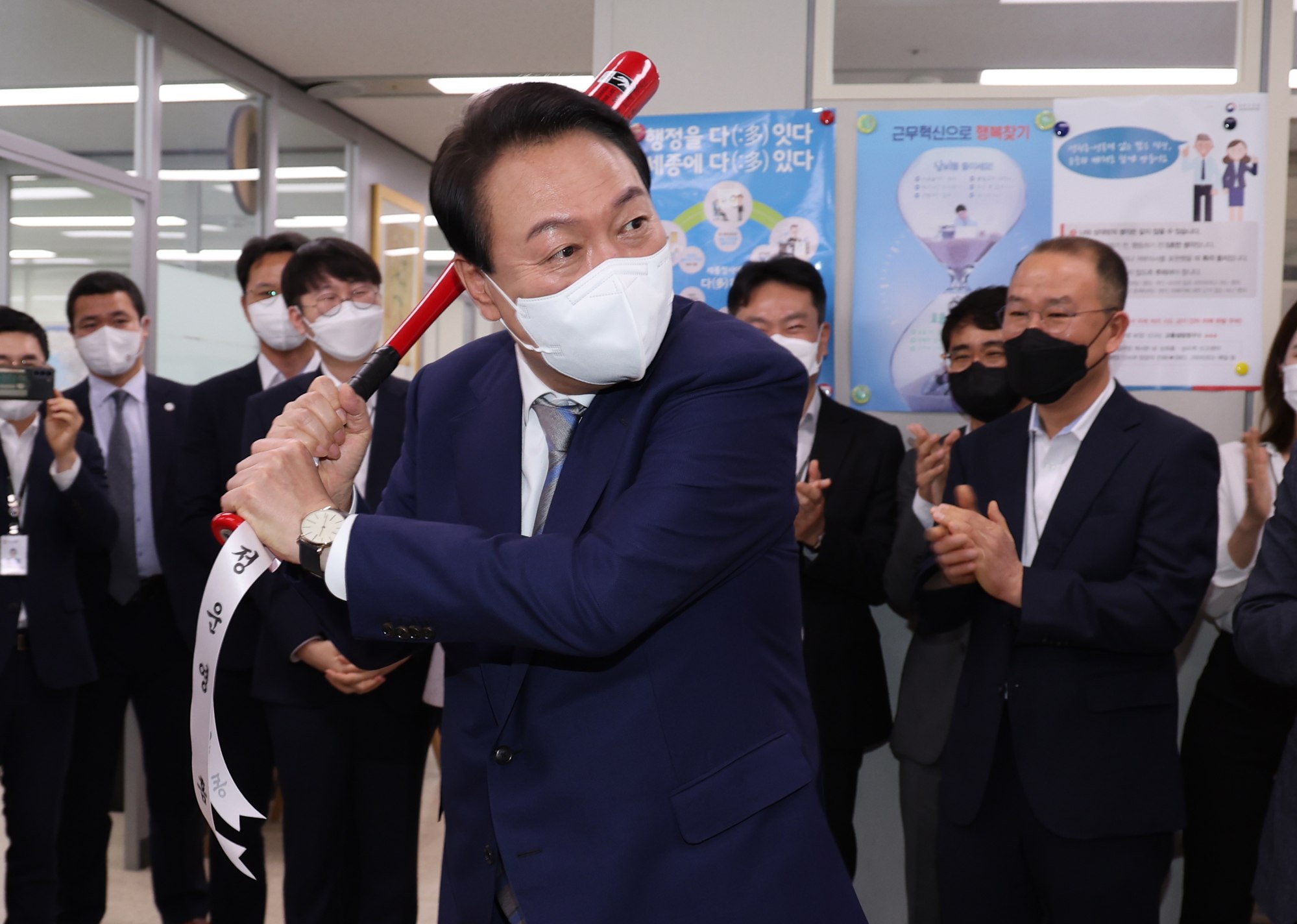
Yoon Suk-yeol says South Korea will no longer ‘appease’ North, but are Seoul’s policies and China affecting future talks?
- Yoon Suk-yeol said Seoul will no longer ‘appease’ the North, and any talks must be initiated by Pyongyang, as analysts warn rising tensions could spark new war
- Yoon also said his predecessor Moon Jae-in’s soft stance on North Korea turned out to be a ‘failure’ because it failed to rein in Pyongyang’s nuclear build-up
South Korea’s new president was talking tough on North Korea in his first international sit-down interview since taking office on May 10, but for all of Yoon Suk-yeol’s bravado, his conservative government’s policy may keep the situation on the Korean peninsula in a “deadlock”.
“I think the ball is in Chairman Kim’s court – it is his choice to start a dialogue with us,” Yoon said, referring to the North’s leader, Kim Jong-un.
Political Science Professor Andrei Lankov of the Kookmin University said South Korea’s conservative governments have been making the same demand since 2008 that the North should abandon nuclear programmes first before being rewarded.
‘Instant crisis’ if North Korea restarts nuclear missile tests: South’s Moon
“Of course, the North has no intention to move first and give up nukes, therefore, this conservatives’ policy line results in a deadlock,” he said.
Seoul says first North Korean missile test following Biden’s Asia trip was ICBM
The North is also believed to be preparing for a nuclear test, which, if conducted, will mark the first test since September 2017, and seventh overall.
“A lesson of the latest conflict in Europe is the need for more diplomacy on the Korean peninsula, but the Kim regime continues to boycott negotiations,” Easley said.
Some of President Yoon’s conservative supporters have called for additional THAAD missile defences, pursuing alliance nuclear sharing, and even redeploying US tactical nuclear weapons, he added.

“It is up to Kim when North Korea will escalate tensions further with another nuclear test, but it is largely China that is setting the geopolitical stage,” he added.
The massive joint exercises by the two allies are scheduled for August. North Korea condemns such drills as rehearsals for an invasion.
Choi Kang of the Asan Institute for Policy Studies said Yoon is seeking to “force chances to the North’s strategic calculations” by heaping pressure through sanctions and strengthening its alliance with the United States in the face of growing nuclear and missile threats after “Moon’s soft stance failed to rein in its nuclear build-up”.
Since the first nuclear crisis broke out in 1993, policies toward the North have blown hot and cold, alternating between sticks and carrots, only resulting in the expansion of the North’s nuclear capabilities, Jeong said.
Returning to dialogue is the best option, “Otherwise, we could see a war break out during Yoon’s [five-year] official tenure,” Jeong said on Tuesday on YTN TV.
Ventilators to masks, North Korea bought Chinese supplies before it had Covid
“We must stop daydreaming that we can restrain the North by asking China or Russia to help persuade it,” he said.
Political Science professor Yang Moo-jin of the University of North Korean Studies said when the North carries out a potential nuclear test, the Korean peninsula will be a frontline of a “new Cold War confrontation” involving world powers and the two Koreas.
Kim Yeon-chul, Moon’s ex-Unification Minister, said on Hankyoreh TV last week that Yoon and Biden were emphasising only military deterrence, “leaving the door closed shut for dialogue” in the eyes of North Korea.

